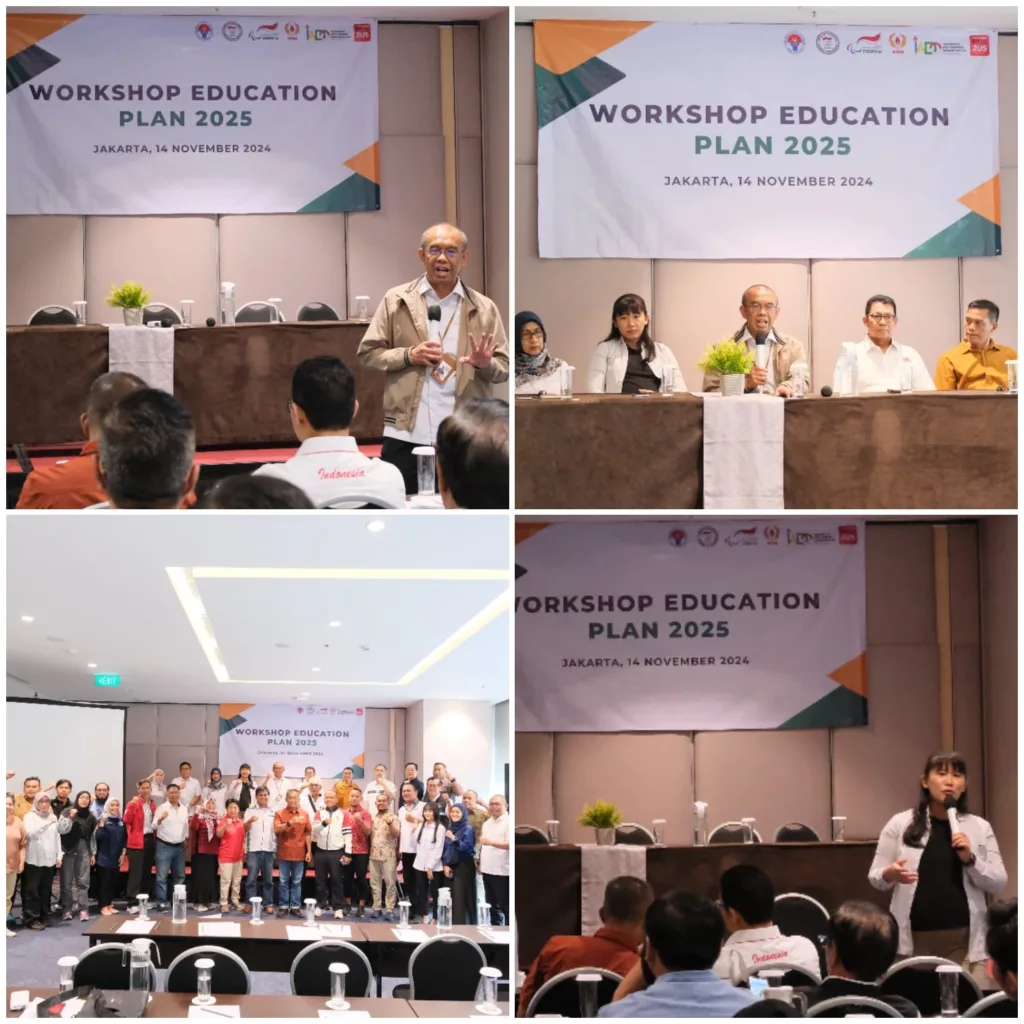
Jakarta, 14 November 2024
The “2025 Education Plan Workshop” organized by the IADO Education Directorate which was held on November 14th, 2024 which was not aimed for providing anti-doping education to athletes or ASPs (Athlete Support Personnel), but that activity was related to the planned educational activities in 2025 in the format of collecting opinions from IADO partners regarding what education is really needed most by National Federations. That was in line with the previous explanation by Dr. Yaya Yamamoto at The 4th CHINADA International Anti-Doping Symposium, stating that “if you want to provide effective education then NADO (National Anti-Doping Agency) must find out what the beneficiaries need, so it’s not just about what education NADO thinks is important to share but also to hear what kind of education activity they need, starting from the target group for the education, the material, even the form of activity.” That activity was opened by the Chairman of IADO Mr. Gatot S. Dewa Broto, presenting an overview of IADO starting from what is in the area of anti-doping (Education, Testing, Communication, Intelligence and Investigation, Legal, and Results Management). Accordingly, it was hoped that workshop participants would have the same understanding that anti-doping is not just to test, but also includes education and intelligence as well as investigations.
In his presentation, the Chairman of IADO emphasized who IADO’s partners are, in which one of them is the NF (National Federation), which can collaborate with IADO to carry out any Anti-Doping Education. In addition, there was also an explanation from the Director of Education at IADO Mrs. Natashya Marcellina Ardiany regarding the legal base for carrying out the 2025 Education Plan Workshop activities, namely to carry out activities, encouraging participants to be more responsible and pro-active with the ideals of clean sports, maximizing cooperation with NOC, NPC, NF and other national sports organizations, reducing or even eliminating doping cases in Indonesia, and as NADO, IADO becomes the sole authority in the field of anti-doping education in Indonesia. Additional material was provided by the Testing Director Mrs. Linda Rosalina who emphasized to all of National Federations to remind their athletes to fill in the Whereabouts / platform to notify the athlete’s whereabouts, because if the athlete would have made a mistake, namely a combination of missing out on filling in the Whereabouts in each quarter, or a Missed Test occurs, then the athlete could be subject to an anti-doping violation which would result in a sanction of not being allowed to compete.
In the final session, discussions were held with National Federations regarding what the Education Directorate could help with regarding providing anti-doping understanding to athletes and ASPs. Some gave their responses, for example from the Indonesian Bowling Federation who responded that anti-doping education was very important, so he kindly asked that anti-doping education could be carried out in the form of seminars for international athletes around November or December. Furthermore, there was input from the Indonesian Aero Sport Federation who said that currently anti-doping education seems to be not so intensive and it is only carried out in multi-events, while preparation for single events in sports at the Indonesian Aero Sport Federation is also needed, bearing in mind that currently the related federation requires anti-doping education, especially it should be targeted to the management level, then later at national level athletes. As for conveying obstacles regarding the difficulty of receiving anti-doping education to the beneficiaries, one of them came from the NPC, where many athletes have difficulties in hearing and speaking, so that sometimes anti-doping education is difficult for athletes to receive directly. All requests, input and obstacles become evaluation material from the IADO Education Directorate.